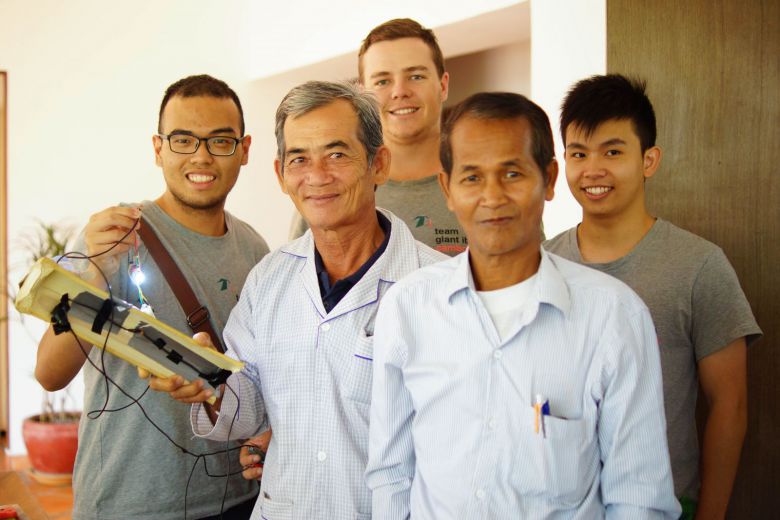Developing global citizens and empathic humans – EWB’s Design Summit program
Public speaking can be a daunting experience, especially if you are talking about some of the worlds’ greatest social and environmental challenge and you are speaking to those affected most.
This is what Engineers Without Borders Australia asks of its Humanitarian Design Summit participants, young university students, many on their first trip overseas. For most, it’s a challenging yet intensely rewarding empathic experience.
Public speaking can be a daunting experience, especially if you are talking about some of the worlds’ greatest social and environmental challenges and you are speaking to those affected most.
This is what Engineers Without Borders Australia asks of its Humanitarian Design Summit participants, young university students, many on their first trip overseas. For most, it’s a challenging yet intensely rewarding empathic experience.
“It allowed us to think of design ideas that are appropriate for the communities, and also made us care about their wellbeing that bit more. A lot of design work in developing countries has failed due to a lack of understanding,” said Emily Campbell, a systems engineering student at Australian National University.
A program that connects student experience and education, EWB’s Australia’s Design Summit’s aim is not only to teach tangible technical skills, but to show students they can pursue a career of purpose, one that provides them with professional opportunities and allows them to have a positive impact on the world.
Currently run in Cambodia, Nepal, India and Malaysia, the Design Summits teach human-centered design thinking and combine engineering and technical skills with empathy and cultural understanding. The program creates stronger professionals, but also develops students personally.
Emily explains,“For me, exploring the importance of empathy has changed two main things. Firstly, my approach to design problems. I now ask more questions and I question the fundamental assumptions provided to me. I try to make a connection with the user so I can better understand them. Secondly, it has changed the sorts of projects I want to be involved with. Now, I want to be involved in projects where I can make those special connections with a cause or with a group of people.”
Forty-five students attend each two-week summit, and they take away greater knowledge and personal experience of the challenges faced in the Indo-Pacific region which include energy, water, sanitation and health issues. Also, and most importantly, they learn how they can work with communities to create solutions to these challenges.
“The EWB Summits are always very respectful of the local community, keen to learn and ask lots of questions, they always bring great people who are keen to participate and interact with the local communities,” said Tola, Operations Manager at Cambodian Rural Development Team, one of EWB’s community partners.
“Working directly with local communities means students become culturally aware in a number of contexts and opens their eyes to global opportunities to use their skills,” said Joli Price, EWB’s Training Program Coordinator and Design Summit lead.
Supported by facilitators and mentors from a variety of backgrounds, the student’s connection with the local community allows them to investigate sustainable, culturally sensitive and technologically appropriate solutions.
“By participating in the Design Summit Program, students develop a deep appreciation of the importance of two-way knowledge sharing,” she said, “the solutions students present is the result of partnerships between them and the community.”
The program has benefited from scholarships provided by the Australian Government’s New Colombo Plan (NCP) “a signature initiative which aims to lift knowledge of the Indo-Pacific in Australia by supporting Australian undergraduates to study and undertake internships in the region.”
Joli continues, “The NCP is crucial for Australia’s future. It enables more students from our partner universities to access our Design Summits and undergo the transformative experience of our program.”
By creating accessibility, the government is supporting universities and organisations like EWB Australia to continue their positive impact in both the development and education sectors. Investing in the skills of a new generation of leaders will help the region combat the growing effects of climate change and its related challenges.
EWB Australia will run five design summits in 2016. Visit EWB Design Summits to learn more.


